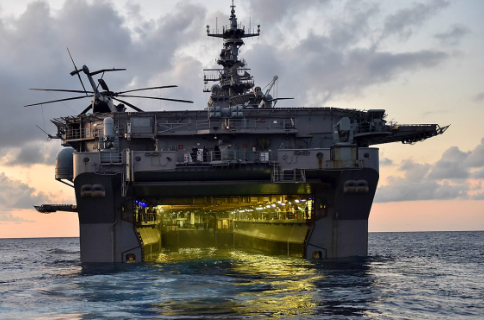Meet Retired Admiral Jeff Spivey
- kimfor149
- Jul 15, 2025
- 3 min read
Meet Mr. Jeff Spivey, a former Admiral in the United States Navy. I first heard Mr. Spivey speak at Chattanooga’s Memorial Day service held at the national cemetery, a final resting place for over 60,000 men and women who served.
Mr. Spivey’s journey to achieving one of the highest positions in the Navy was extremely interesting to me. Unlike many of the veterans I have previously interviewed, Mr. Spivey hadn’t planned on joining the military. He was attending the University of Florida, after transferring from the University of Tennessee Chattanooga, and was studying industrial engineering. It was only when he was talking to job recruiters that he happened to take a test measuring aviator adaptability. The above-average results on this test led to him attending aviator officer candidate school. “The Navy had a need”, said Mr. Spivey, “I knew I would be doing things that are hard and difficult but meaningful”.
After earning his wings of gold, training in the Silicon Valley area, Mr. Spivey flew the P-3 sub hunter. He flew all over South America until his squad was stationed in Hawaii. They were tasked with covering pretty much everything west of their base. Their responsibility spanned from the Arabian Gulf to Guam to even Alaska. Mr. Spivey later became a naval flight instructor in Jacksonville, Florida, and then got out of the Navy to become a pilot for American Airlines. However, he was called back into the Navy to help with the P-8 program. A project by the United States Navy to develop and deploy the P-8 Poseidon aircraft. The P-8 was designed to replace the P-3 and advance the Navy’s technology when it came to anti-submarine warfare. Mr. Spivey worked with many 3 and 4-star admirals on the P-8 and how it affected things relating to NATO.
After the P-8 mission was complete, the Navy had one more job for Mr. Spivey. In 2021, he was promoted to Admiral and was sent to Africa to establish maritime partners. He worked with leaders from Ghana, Tunisia, and Morocco, just to name a few. The goal of this project was to maintain a powerful peace. Especially during a time of international unrest as a result of the COVID-19 pandemic, gaining the trust of foreign leaders was no easy task.
What kept Mr. Spivey in the military was the idea that “if you can support our troops, you can accomplish greater things”. He used the word “support” in a deeper sense. Not just being there for them, but understanding their strengths and weaknesses, in order to empower and coordinate them in the most effective way possible. He emphasized how if you make the right decisions at your level and put capacity and capability when it counts, it makes a big difference. This is related to his advice as well: “Everybody has value, the hard part is when that person's value might not apply to a situation…you have to find people to solve the problem at hand”. I thought this advice was so interesting because it is so unlike any of the advice I had heard from previous interviews. In order to fully understand this idea better, I looked at it through the lens of sports. It’s essentially looking at matchup stats. Different players have different strengths. Using those strengths accordingly and strategically is what will make a team win.
To close out the interview, Mr. Spivey shared how the military has affected his civilian life, “sometimes in the military, you don’t know if it’s a job you're participating in or if it has you dominated in your way of thinking”. But what he has come to find out is that “the military is not your identity, it’s your service”.



Comments